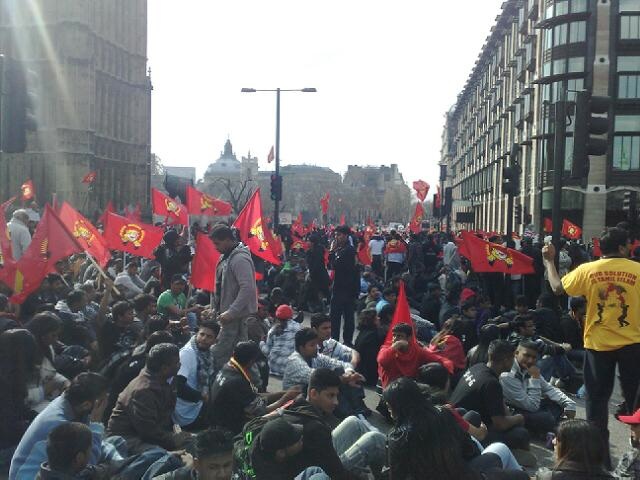
13 years ago today, thousands of British Tamils continuously occupied Parliament Square in London for 72 days as Sri Lanka intensifed its military offensive which led to the massacre of tens of thousands of Tamils in Mullivaikkal.
An unprecedented number of British Tamils staged a sit in protest at Parliament Square following two weeks of of protests outside the Houses of Parliament to demand international action to end the Sri Lankan government's war efforts which targetted civilians in the so-called 'No Fire Zones'.
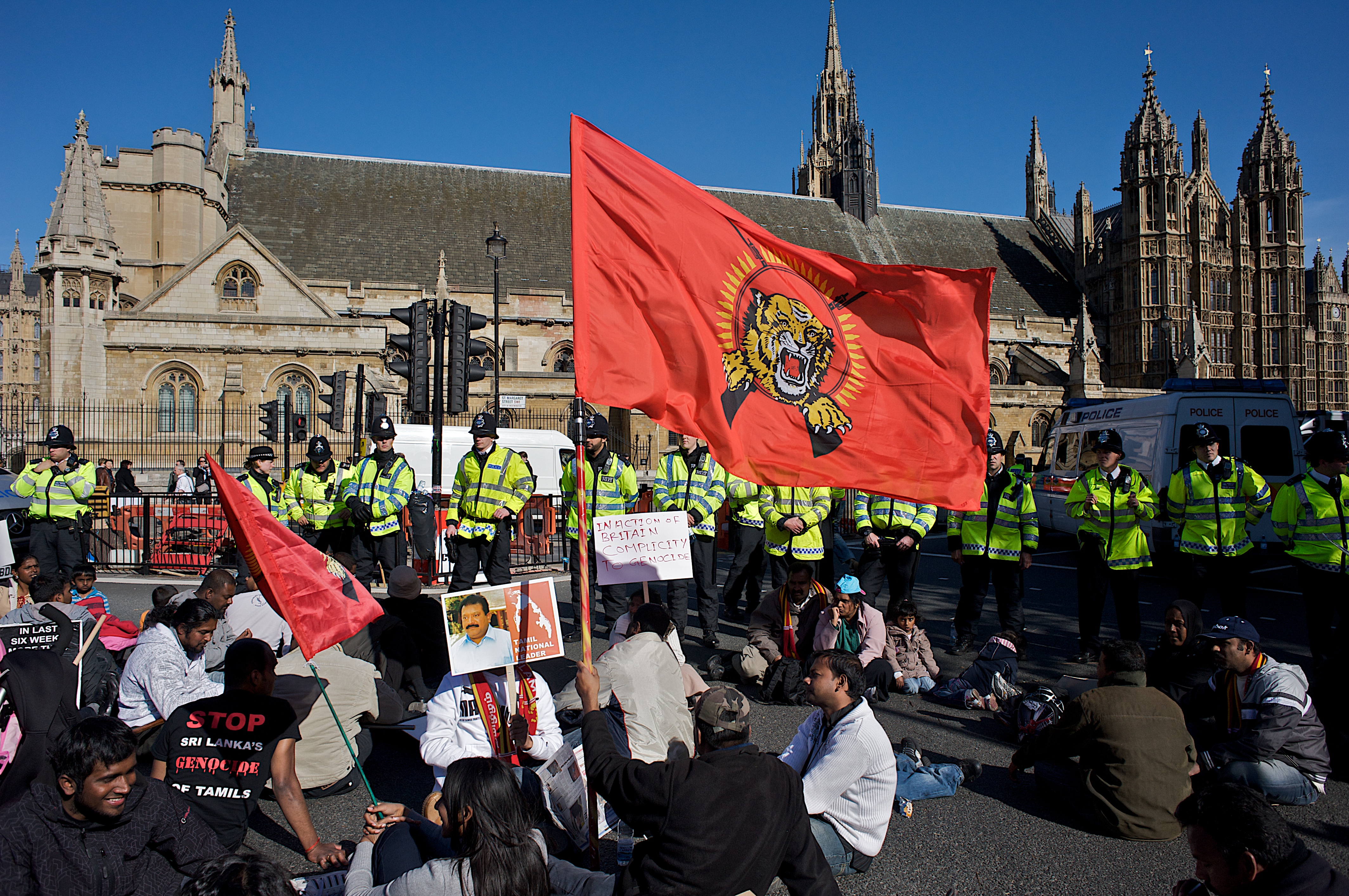
Below is an extract from an eyewitness account:
The occupation itself clearly did not rapidly die out. Perhaps the reason for this lay in its nature- it was definitely not just a passive sit-in. It was dynamic and fluid and characterised by a wide range of innovative, anger-fuelled actions. Yes, we slept in Parliament Square all night with the beating of drums and chants to accompany us. We would wake up in the day and organise, talk to media, talk to politicians and generally agitate. But there was more.
There were roadblocks, including an overspill onto Westminster Bridge the very first day. Starting at 3pm, we were able to secure the bridge and stay until around 7am the next day when we were brutally beaten off by riot police and kettled into Parliament Square, where we were to remain. There were numerous roadblocks since that point in time, normally fuelled by anger and desperation as news from Vanni filtered in- there had been a phosphorus attack, there has been a report of an artillery attack on a makeshift hospital and other reports of a similar nature.
Read the full account here.
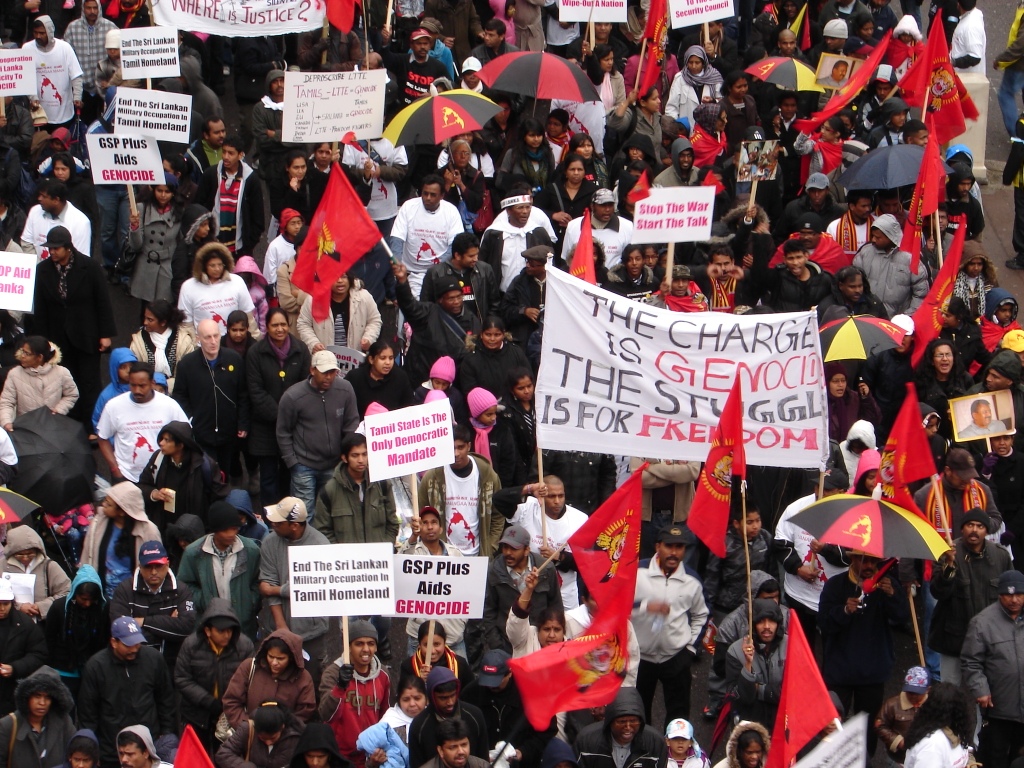
Photograph by TamilNet
Protests also took places across the UK, In Coventry, students organised a fast to express their solidarity with Tamil civilians who were being denied food and medicines. In April 2009, the Tamil diaspora took to the streets in a historic series of protests across the globe, to demand international action to stop Sri Lanka’s massacres at Mullivaikkal.
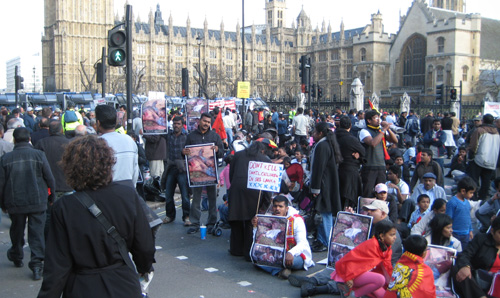
Photograph by The Guardian
Although then President Mahinda Rajapaksa and his brother Gotabaya Rajapaksa who was serving as Defence Secretary at the time, announced that the No Fire Zones were 'safe zones', tens of thousands of Tamils trapped in the tiny areas were subjected to heavy artillery fire and daily shelling.
On April 6 2009, K. Tharmakulasingam, the regional officer of the Mullaitivu Regional Director of Health Services (RDHS), highlighted that the NFZ was being repeatedly shelled. He reported that conservative estimates placed at least 250,000 people within the No Fire Zone.
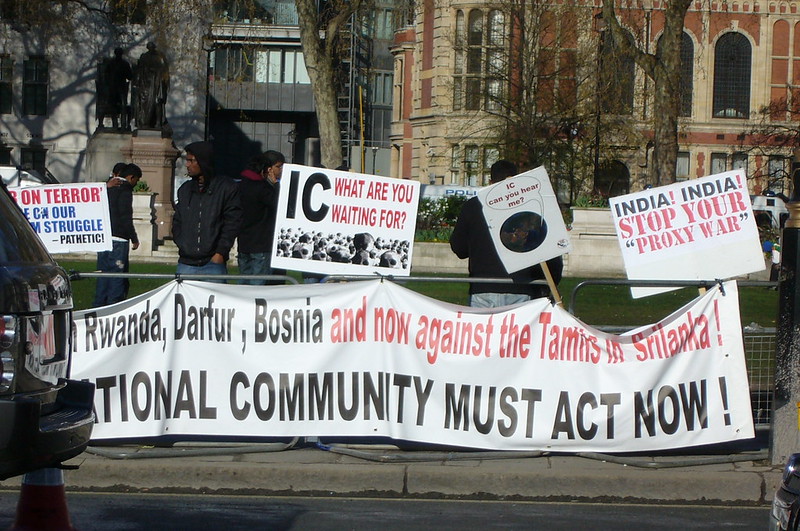
"Hospital staff have gone on streets, begging for blood from civilians who are already suffering from malnutrition and hunger," he said.
"Recently, the hospital received limited amounts of 9 types of medicines," he added. "These are not enough to look after the health care of the people. Even the conservative estimates here put the number of civilians camped in the so-called no fire zone at more than 250,000. But, supplies are not enough to cater for them."
Protests continued in London until June 2009, a month after the Liberation Tigers of Tamil Eelam were militarily defeated and tens of thousands of Tamils slaughted by the state's forces. Tamil Net reported that over 100,000 protesters marched through central London to express outrage at the lack of action by the international community to intervene in the final phase of Sri Lanka's military onslaught and demanded for international accountability.
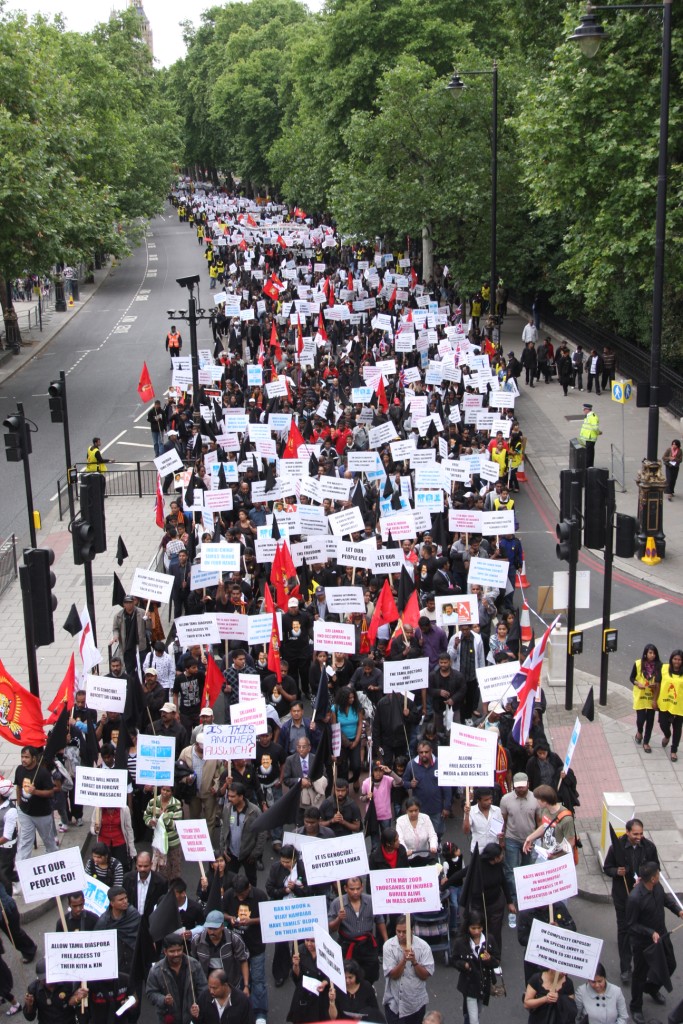
To this day, Tamils in the diaspora and in the North-East continue to call for the perpertrators of the 2009 Tamil genocide to be prosecuted.
